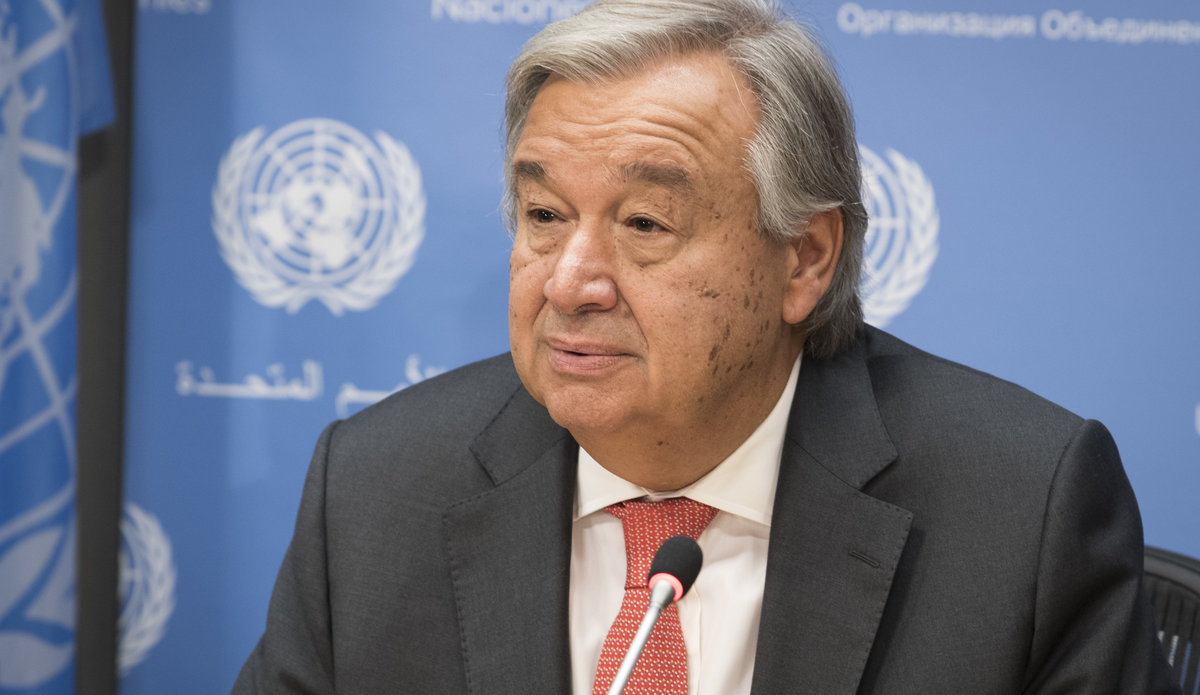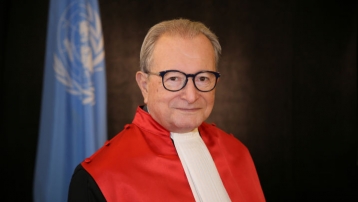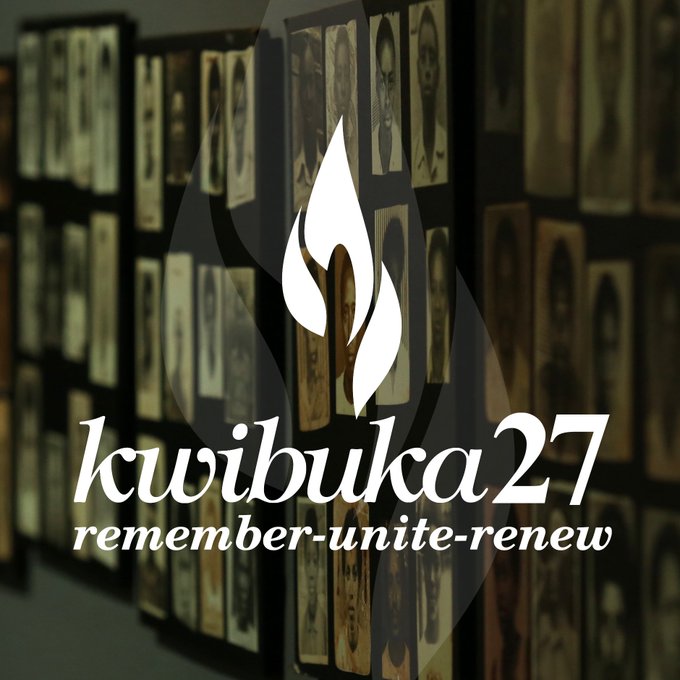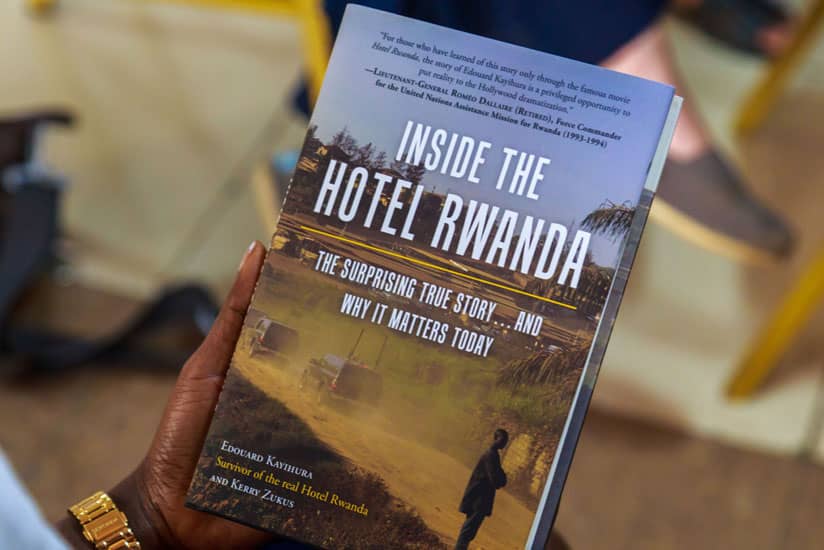Regional
“Iso ni nde?”– The relentlessness of genocide deniers

JAMBO ASBL, an organisation of the offspring of genocide perpetrators living in Belgium but recruiting all over Europe, Australia, the United States, and Canada
There is a resurgence of denial of the genocide against the Tutsi, which is gradually morphing into a security concern not only for Rwanda but for the geo-strategic calculus in the region. At the heart of this resurgence is a young, well-educated cohort of descendants of genocide perpetrators – whose political mobilisation revolves around JAMBO ASBL, an organisation of the offspring of genocide perpetrators living in Belgium but recruiting all over Europe, Australia, the United States, and Canada – who have come of age 27 years after the genocide and are out to cleanse their forebearers of the responsibility for genocide. This much is well understood.
However, the verve with which they have taken up this mission is what perplexes
everyone. They are relentless. It is as if their own lives and those of their
own offspring, not just those of their killer parents and grandparents, depend
on it. Well, in a way, their lives do depend on the legacy of their
forebearers. Here’s why.
In the classic western sense of criminal justice, an
individual (not a group) is held culpable for an offence of the penal code.
This concept has been adapted in the Rwandan sensibilities as “icyaha ni
gatozi.” This means that one’s culpability cannot be ascribed to another in any
way. However, it is well known that during the genocide, the leaders told the
ordinary people to participate in the killing en masse and that if many of them
were involved, no one would be held accountable. This was an effort to decentralize
individual culpability.
The Gacaca justice system attempted to confront this
logic by individualizing criminal responsibility. A list of perpetrators was
drawn, and three categories were established based on the level of
responsibility: a) leaders who organized the killings, b) ordinary people who
killed, and c) those who only looted property.
The severity of the punishment was supposed to follow that logic. The architects of the genocide, Category 1, were tried under the International Criminal Tribunal for Rwanda (ICTR) and were supposed to receive the harshest punishment, although some inexplicably had their sentences reduced for “good behaviour” leniency under Judge Theodore Meron of the Tribunal’s residual mechanism following the closure of the ICTR.
Some suspects in Category
1 were tried in Rwanda’s conventional courts, while ordinary perpetrators in
Category 2 were tried in Gacaca courts. Many in Category 2 remain in jail,
although some have been released under the prerogative of presidential pardon
due to health reasons and old age, or following their completion of community
service known as Travaux d’Intérêt Général” or TIG. Category 3 offenders were
ordered to pay civil reparations.
Holding Hutus hostage
Jambo ASBL is committed to preserving the logic of their
forebears as a means of concealing individual responsibility under collective
self-defence: “if everyone is accused, no one – especially their forebearers –
will be held to account.” They interpret justice for the genocide as persecution
of a community. In their rhetoric of cleansing their forebearers of criminal
and moral responsibility for genocide they invoke the nostalgic past of the
pre-genocide period despite claiming that their innocence is due to the fact
that they were either too young then or hadn’t been born.
They share this nostalgic desire of returning Rwanda tothe “glorious past.” In this way, they share the political ambitions of
political entrepreneurs who have tended to criminalize the Hutu as a group as a
means of accessing political power. They have done this by mobilizing people
based on ethnic sentiments and attempting to rally them around a myth of common
persecution/suffering by suggesting that what is criminal is being Hutu when,
in fact, the criminals are the perpetrators of the genocide and its deniers. In
other words, Jambo kids and political entrepreneurs seek to hold the entire
ethnicity hostage by conceiving it as a human shield for their private
interests – shielding the forebears from criminal responsibility by means of
which they access political power.
“Iso n’inde?”
In the African conception of life, the individual’s life
has meaning only in relation to others. This is the idea behind the Ubuntu
philosophy: “I am, because you are.” In African metaphysics, heaven and hell
are here on earth. Those who have lived a life dedicated to a purpose greater
than themselves, to the community, are fondly remembered when they “die.” A
person of integrity never truly dies because they continue to exist around us within
the spiritual realm. They are looking after those they left behind in the
physical realm and continue to bless them with good luck. All blessings to an
individual and the community is a result of the ancestors.
It is those who have lived a callous life that “die.”
They are quickly forgotten and they are responsible for all bad luck that
befalls the community. Moreover, they bequeath this bad fortune to their
offspring, who are viewed in the community with suspicion and without
credibility until they undergo a cleansing exercise to restore the goodwill of
the community. For this reason, a crime is never an individual affair;
depending on its gravity, it could have wide-ranging negative consequences
beyond the present life.
This is why the most important question an African can be
asked is “who is your father?” or its variant, “to whom do you belong.” An
African who is asked this question knows that the answer to that simple
question is most likely either going to open or close the door of opportunity. As
you prepare to answer you know our ancestors are about to bless or curse you.
It is almost possible to predict one’s fortunes. Now imagine the significance
of the question “Iso n’inde? or “Uri uwande,” in a community that was befallen
by the tragedy of genocide. The anxiety activates instincts for self-defence.
This is the challenge of fighting genocide denial.
Although the criminal responsibility for genocide was determined in the western
juridical sense of individual culpability, the perpetrators who are still alive
know what they have done to their offspring, and the latter know that although
they have no crime to answer for as individuals in the western sense, they
still face issues of trust and credibility in the community.
This is the challenge of fighting genocide denial. The
creativity and passion involved in inventing new ways of distorting the record
of genocide have to do with the perception that their credibility – and
suspicion – in the community, that of their offspring, and that of the generations
after them, depend on it.
The currency of
forgiveness is truth
In the African tradition, a cleansing ceremony is
organised for those who seek to restore or recover the trust and credibility of
the community. If the offender dies without having undergone this ceremony, it
is organised for his offspring so that they are freed from his offenses to the
community in order for them to qualify for its good fortune. Indeed, it is also
considered to be uncivil to continue to ascribe infamy to those who have
undergone this cleansing exercise and have restored their credibility in the
face of the community that now no longer views them with suspicion.
Therefore, denouncing the genocide ideology by affirming
the truth around it serves a double role. It protects one from the crime of
genocide denial. Second, and most importantly, it frees one from carrying the
burden of the criminality of his or her forebearers. In other words, the
community’s trust and credibility – both the community of the offended that includes
all Rwandans and that of victims who are the survivors – are restored under
both forms of justice and accountability.
The alternative that evades the truth and seeks
protection in denial is worse. The offspring of genocide perpetrators know that
in addition to having to evade the justice system for perpetuating the genocide
ideology, the question “iso ninde” remains a haunting prospect, which explains
their anxiety that they attempt to deal with by compounding the original
problem: embracing the ideology of their parents. This commits not only them to
the crime in the traditional sense but also prepares to bequeath the same
burden to their offspring to whom they commit a vicious cycle that rekindles
the metaphysical association to criminality.
Rather than embrace the ideology of their forebearers, they should rather embrace the truth as the “currency of forgiveness.” This choice breaks the vicious cycle and commit to a virtuous circle as credible and trusted members deserving the community’s good fortune.





